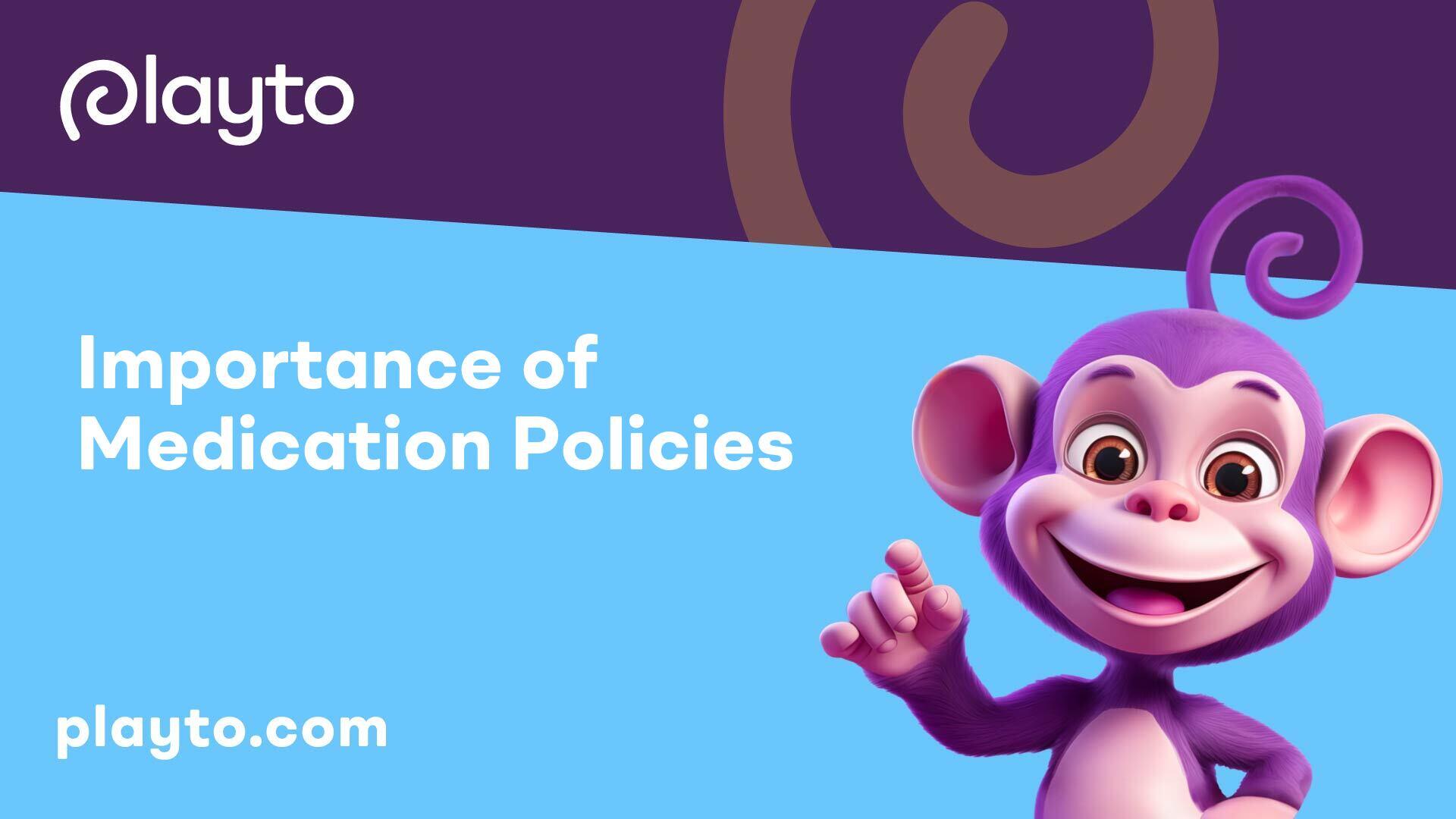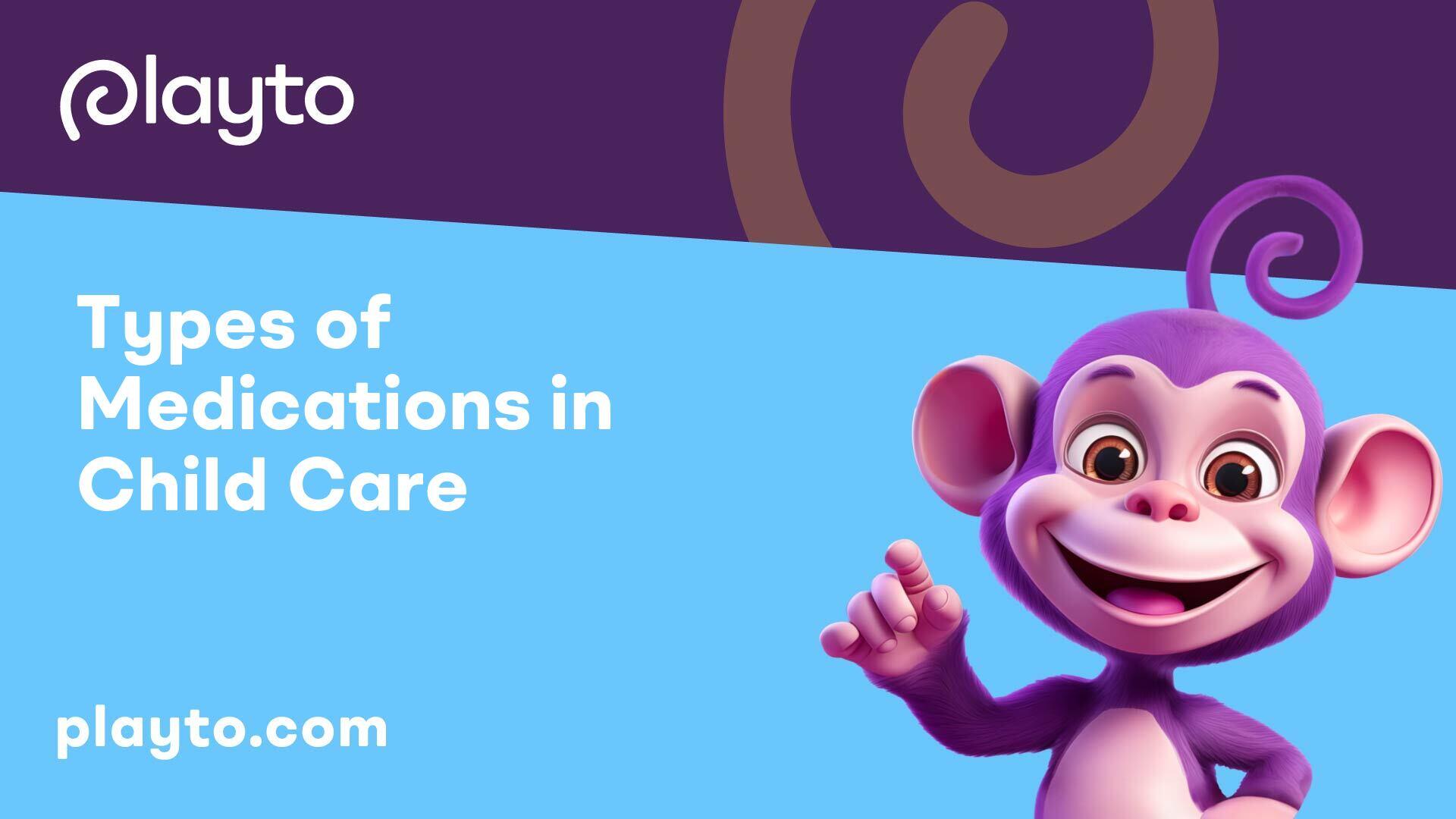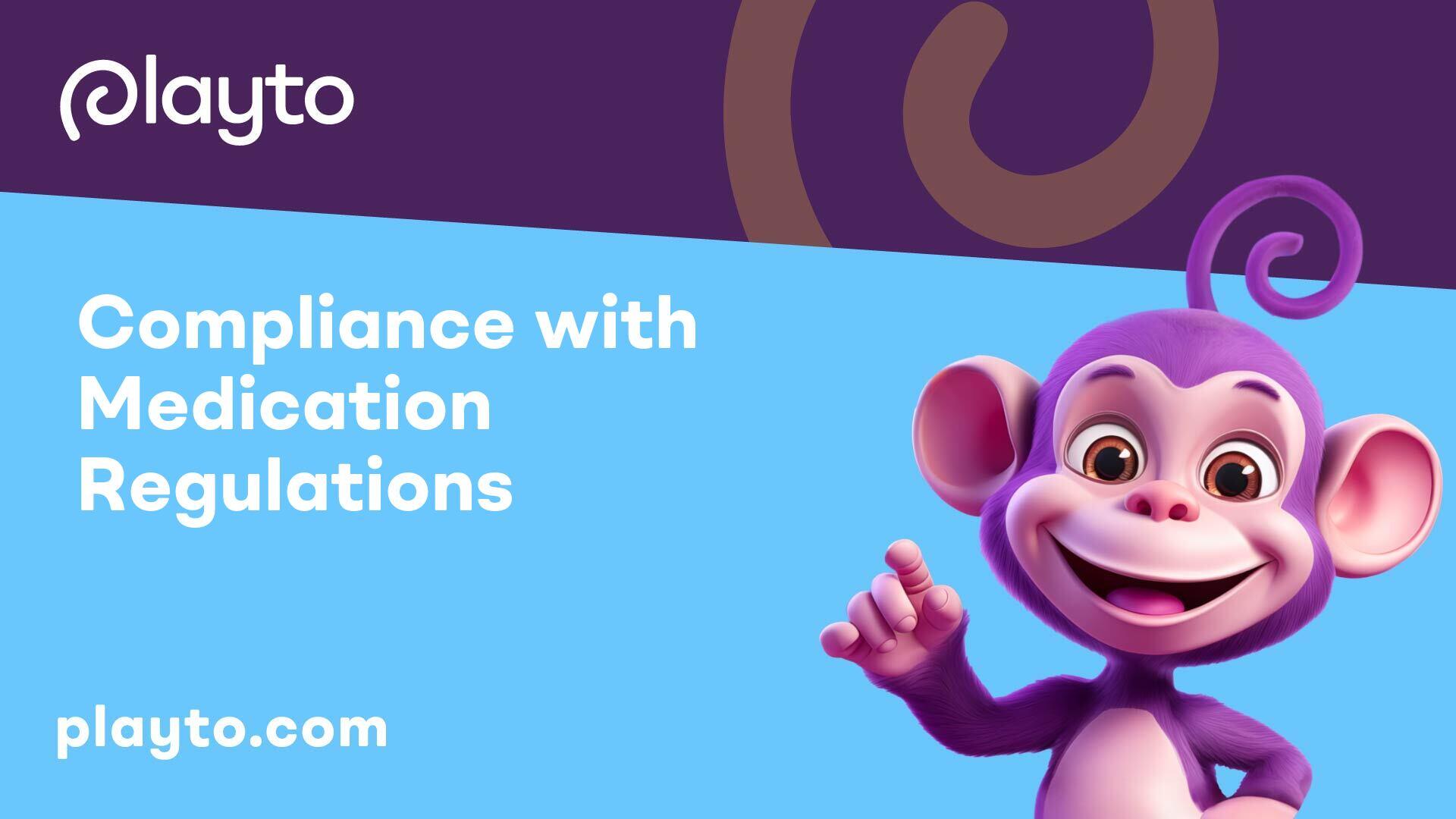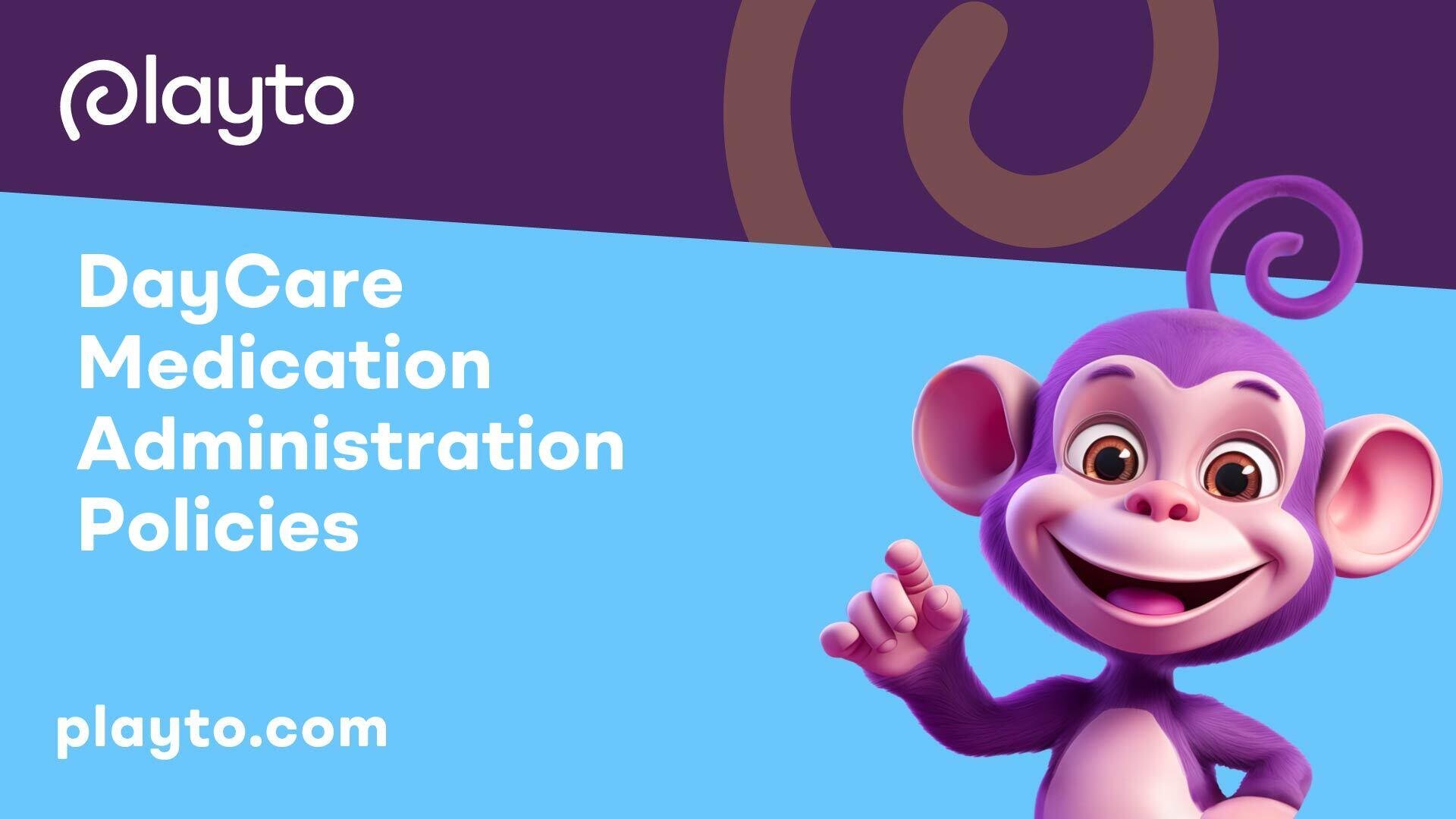
Importance of Medication Policies
In daycare settings, having well-defined medication administration policies is essential to ensure the safety and well-being of the children under their care. These policies outline specific procedures and protocols that must be followed when administering medications to children.
Ensuring Child Safety
The primary goal of implementing medication policies in daycare facilities is to prioritize child safety. Child care directors and providers must ensure that children receive the appropriate dose of the correct medicine at the scheduled time while adhering to proper administration guidelines. This not only prevents medication errors but also minimizes the risk of adverse reactions or complications that can arise from improper medication handling.
Parents also play a vital role in promoting child safety by sharing crucial medical information with the daycare staff and providing medications in clearly labeled containers. To further safeguard children, any leftover medications for short-term illnesses should be collected once the prescribed course is completed. Medications intended for long-term use should be picked up before extended breaks or upon request by the daycare health team.
Role of Child Care Providers
Child care providers have a significant responsibility in ensuring the effective implementation of medication policies. When administering medications, providers should abide by strict guidelines, including not exceeding the expiration date specified by the healthcare provider and documenting each administration accurately. Licensed daycare centers must ensure that the child has received the first dose of a new medication before administering subsequent doses.
Moreover, each medication administered to a child requires a separate JFS 01217 form to be completed. This form serves as documentation for the medication administration and is valid for a specified period, typically not exceeding twelve months from the date of signature. This meticulous record-keeping is crucial for tracking medication usage, monitoring any potential side effects, and maintaining transparency in the daycare's medical practices.
By emphasizing the importance of medication policies and emphasizing the roles of both childcare providers and parents, daycare facilities can establish a safe and organized environment for managing children's health needs. These policies not only promote accountability and adherence to regulations but also prioritize the well-being and safety of every child in their care.

Types of Medications in Child Care
In a daycare setting, the management of medications plays a critical role in ensuring the health and well-being of children under their care. Understanding the common conditions that may require medication administration and following medication administration guidelines are essential aspects of daycare medication policies.
Common Conditions
An estimated 25% to 43% of children in the U.S. take medications to treat various health issues while in daycare. These conditions may include but are not limited to:
It is imperative for child care providers to be aware of these common conditions and the corresponding medications prescribed to manage them. Proper knowledge and training in administering medications are crucial to ensure the safety and well-being of the children in their care [1].
Medication Administration Guidelines
Child care directors and providers must adhere to strict medication administration guidelines to guarantee that children receive the correct dosage of the appropriate medication at the right time. Whether it is managing prescription medications or over-the-counter medicines, following established protocols is vital for the safety and health of the children.
By implementing comprehensive medication administration guidelines and being knowledgeable about the common conditions that require medication in daycare, child care providers can ensure the health and safety of the children entrusted to their care. Adhering to these guidelines not only fosters a secure environment but also promotes the well-being of the children in daycare settings.

Compliance with Medication Regulations
Ensuring compliance with medication regulations in daycare centers is paramount to maintaining the health and safety of the children under their care. This section focuses on the legal requirements and the essential documentation and authorization procedures that must be followed.
Legal Requirements
In accordance with regulations, a JFS 01217 form titled "Request for Administration of Medication for Child Care" is mandatory for all prescription and non-prescription medication at childcare centers, unless required by a "Child Medical/Physical Care Plan for Child Care." The completion and signature by a licensed healthcare professional on the JFS 01217 form are essential for prescription medications, non-prescription medicines containing codeine or aspirin, or non-prescription medication to be administered for more than three consecutive days within a fourteen-day period.
Additionally, non-prescription medications, food supplements, or medical foods at daycare centers must be stored in their original container with directions based on the child's age and weight, or have instructions completed and signed by a licensed healthcare professional. Adhering to these legal requirements ensures the proper handling and administration of medications in childcare settings.
Documentation and Authorization
Licensed childcare centers that administer medications, food supplements, medical foods, or topical products are required to document each administration meticulously. It is important to wait until the child has received the first dose before administering any further doses. Each medication administered to a child necessitates a separate JFS 01217 form, ensuring clear documentation and tracking of all medications dispensed.
Moreover, the JFS 01217 form must be completed for each medication given to each child, with each form remaining valid for a specified period not exceeding twelve months from the date of signature. Proper documentation and authorization procedures are crucial in maintaining accurate records of the medications administered to children, facilitating effective communication between parents, healthcare providers, and daycare staff.
By adhering to the legal requirements and diligently following the documentation and authorization protocols outlined, daycare centers can uphold the highest standards of medication administration practices, ensuring the well-being and safety of all children in their care. For more information on safety measures in daycare centers, explore our article on safety policies for infant daycare.
Staff Immunization and Health Screening
Ensuring the health and safety of children in daycare settings is paramount, and one essential component of this is establishing robust daycare medication administration policies that include staff immunization requirements and health screening protocols.
Immunization Requirements
In accordance with the regulations outlined in the Ohio Administrative Code (Ohio Administrative Code), daycare facilities mandate that all employees must provide written documentation of current immunization against tetanus, diphtheria, and pertussis (Tdap) from a licensed physician. Exemptions may be granted for religious and medical reasons. This documentation must be submitted on or before the employee's first day of employment.
Similarly, child care staff members are also required to present written proof of current immunization against Tdap from a licensed physician. The same exemptions for religious and medical reasons apply, and this documentation must be provided before the staff member's first day of employment.
Tuberculosis Screening Protocols
In addition to immunization requirements, employees and child care staff members are obligated to inform the daycare center if they have resided in a country identified by the World Health Organization (WHO) as having a high burden of tuberculosis (TB) and have arrived in the United States within the five years preceding their employment application. This notification should be documented on a complete medical statement that meets specific criteria.
Moreover, if an employee or staff member meets the criteria for TB screening, daycare centers must adhere to specific testing procedures as stipulated by the Ohio Administrative Code. This may involve a two-step mantoux tuberculin skin test or a blood assay for M. tuberculosis. The regulations further delineate the actions to be taken based on negative and positive test results to ensure the safety and well-being of all individuals in the daycare environment.
By adhering to these meticulous immunization requirements and comprehensive TB screening protocols, daycare facilities in New York can uphold high standards of health and safety for both their staff members and the children under their care. These measures play a crucial role in creating a secure and healthy environment conducive to the well-being of all individuals involved in the daycare setting.
Medication Storage and Handling
Ensuring proper storage regulations for medications, medical foods, and topical products is essential in a licensed child care center to maintain the safety and efficacy of these items. These regulations entail storing medications immediately upon arrival at the center, following specific requirements outlined on the label, and keeping them out of the reach of children, unless permitted for school-age children to carry their emergency medication.
It is crucial to refrigerate medications, medical foods, or topical products if necessary and ensure they are accessible to employees at all times. Items must be removed when no longer needed or expired to prevent any potential risks.
Disposal Procedures
When it comes to the disposal of medications, medical foods, or topical products at childcare centers, proper procedures must be followed to ensure the safety of children and staff. Items should be disposed of in accordance with regulatory guidelines to minimize any potential harm or misuse.
According to emanuals.jfs.ohio.gov, medications, medical foods, and topical products in childcare centers need to be stored in the original container with a manufacturer's label containing directions based on the child's age and weight, or have detailed instructions completed and signed by a licensed physician, licensed dentist, advanced practice registered nurse, or certified physician's assistant. This ensures that the correct dosage and method of administration are provided for each child.
Each administration or application of medication, medical food, or topical product must be documented immediately on the JFS 01217 form after administering. This documentation process is crucial for tracking the usage of medications and ensuring that each child receives the appropriate treatment.
Licensed childcare centers administering medications, food supplements, medical foods, or topical products should adhere to specific guidelines, including waiting until the child has received the first dose before administering further doses, not exceeding the expiration date indicated by the healthcare provider, documenting each administration, and maintaining separate JFS 01217 forms for each item administered. These procedures help to prevent errors in medication administration and ensure the safety of the children in care.
By following strict medication storage guidelines and disposal procedures, childcare centers can uphold the highest standards of safety and care for their young charges. Proper handling of medications not only safeguards the health and well-being of the children but also demonstrates a commitment to excellence in childcare practices.
Administration Protocols
In daycare settings, the correct administration of medication is paramount to ensuring the well-being of children. This section will outline the essential aspects of the administration protocols, focusing on dosage administration, documentation, and monitoring of medication usage.
Dosage Administration
When administering medications to children in daycare, child care providers must adhere to strict guidelines to ensure the safety and efficacy of the treatment. It is crucial for child care directors and providers to follow dosage instructions meticulously, ensuring that each child receives the correct dose of the prescribed medication at the designated times [4].
To maintain accuracy in dosage administration, child care staff should keep detailed records of each medication administered, including the name of the medication, dosage amount, time of administration, and any specific instructions provided by the child's parent or healthcare provider. This level of diligence is essential in preventing errors and ensuring the children's safety while under the care of the daycare facility.
Documentation and Monitoring
Proper documentation is a fundamental component of medication administration in daycare settings. All medications administered to children must be accurately documented, including the dosage given, the time of administration, and any observed side effects or adverse reactions. This information should be recorded in the child's individual medication log, which is maintained by the daycare staff to track the child's medication history.
Moreover, used medications for short-term symptoms should be collected once the last dose is taken, while medications prescribed for long-term use should be retrieved before extended breaks or whenever requested by the school health team [1]. This practice ensures the safe storage and disposal of medications, reducing the risk of misuse or accidental ingestion.
Regular monitoring of medication administration practices is essential to identify any inconsistencies or errors in dosage administration. Daycare providers should conduct periodic reviews of medication logs and documentation to verify compliance with dosage instructions and identify any trends or issues that may need to be addressed. By maintaining thorough and accurate records, daycare facilities can uphold high standards of medication safety and ensure the well-being of all children under their care.
References
[2]:
[3]:
[4]:
